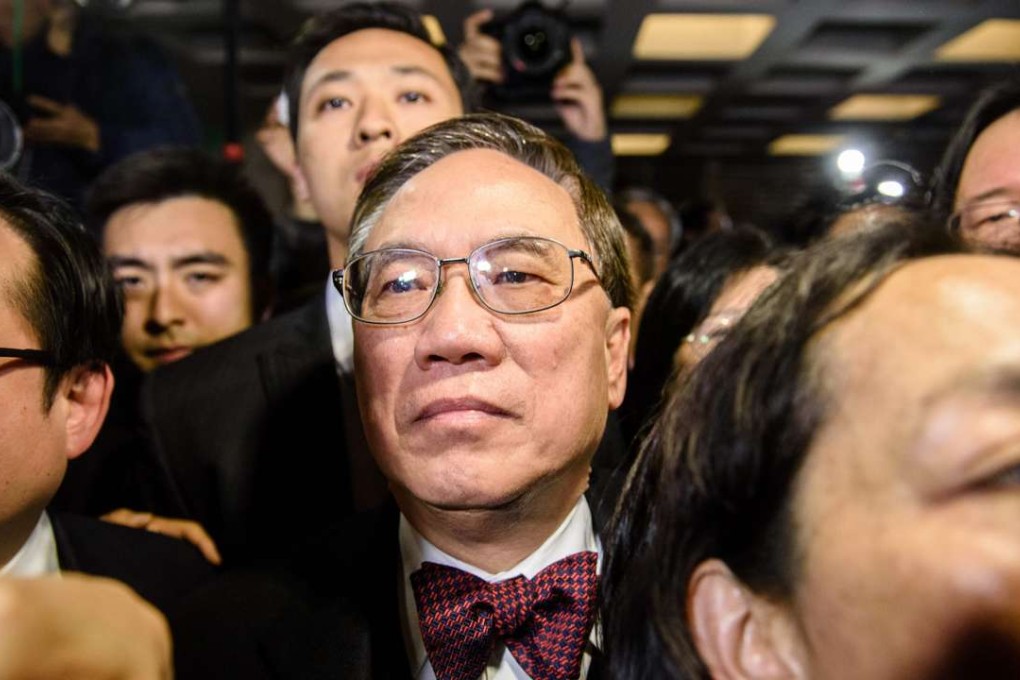Donald Tsang’s downfall a lesson for all public servants
The former chief executive once commanded enormous respect but his jailing for misconduct reflect the pitfalls faced by those in positions of authority

Donald Tsang Yam-kuen’s fall from grace is not for him alone to contemplate. A bright and hard-working civil servant of long standing, he rose to the top of Hong Kong’s government, winning plaudits and respect. Then came his downfall, lapses of judgment and policy missteps smudging his legacy. The 20-month jail term for misconduct given to the former chief executive is a personal tragedy, but also a lesson for all in government and positions of authority.
Tsang’s policies helped Hong Kong weather the Asian financial crisis in 1998, when he was finance secretary, and the 2008 global economic meltdown, which came in his third year as chief executive. While he was at the helm, unemployment fell and fiscal reserves surged. Hopes of democracy were raised with the publishing of a timetable for universal suffrage, a minimum wage was introduced and political reform implemented. The agitation for change that forced the resignation of his predecessor, Tung Chee-hwa, for a time subsided.
His home-grown background and devotion to the Catholic religion won adherents and served to his advantage. He was respected, loyal and trusted; the letters at his trial from the high and mighty in society, chief executive aspirants and former civil service colleagues among them, attest to the great esteem with which he is still held by some. But not all his policies were successful, nor was his governing style or character to everyone’s liking, his flamboyant trademark bow-tie among them. A particular failing was his approach to housing.
But public sentiment soured. Revelations of links to the wealthy through private jet and yacht jaunts and visits to Macau casinos raised doubts about his propriety. The arrangement with businessman Bill Wong Cho-bau for a luxury retirement flat in Shenzhen as approval was being sought for three radio licence applications by a company of which Wong was a shareholder was bound to get the attention of the Independent Commission Against Corruption. The filing of corruption charges and eventual jailing of his colleague, former chief secretary Rafael Hui Si-yan, was a blot on his administration and furthered the pressure for an investigation.
The sight of Tsang leaving court in handcuffs to serve his sentence was pitiful. He and some others may have considered his failure to declare a conflict of interest trivial, perhaps even unnecessary. But where senior government officials and tycoons rubbing shoulders socially was once accepted by society, it is now frowned upon. We expect from our government the highest standards of accountability and integrity. Our first chief executive to be imprisoned and all those in positions of authority have to reflect upon that.